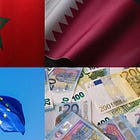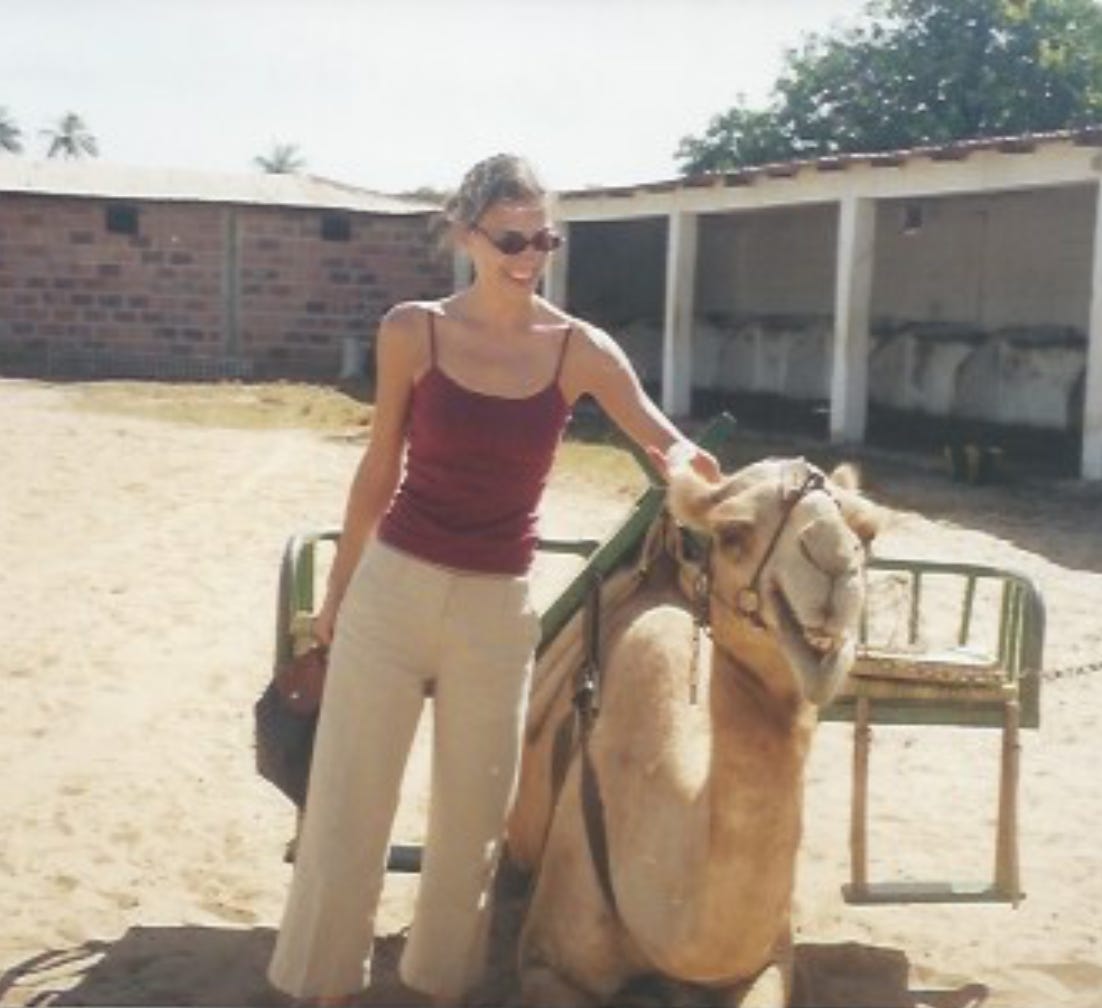Meloni, Musk, and Moving the Margins to the Mainstream
A look at some subtle influence campaigns behind prestigious awards
VESPERS! Coming Thursday, October 3 at Noon Eastern, 5:00pm London, 6:00pm Europe, with special guest Nico de Pedro, an expert in Russian active measures.
I hope you’ll join us for what is bound to be a scintillating discussion. Reminder: VESPERS is for paid subscribers only. Don’t miss out!
Earlier this week, I published Class 19: A deep dive into Project Good Old USA, a Russian influence campaign that aimed to elect Donald Trump in 2024.
A friendly reminder that Rant! is a reader-supported publication. Thank you for making this newsletter possible!
ALEX’S WEEKLY RANT

Foreign influence can take all kinds of shapes and forms.
This week, I’d like to introduce you to the Sakharov Prize, a prestigious award established by the European Parliament to celebrate defenders of freedom of thought and human rights. Past winners include Nelson Mandela and Malala Yousafzai.
In more recent years, however, a number of intelligence services have seen the prize as yet one more thing to influence and manipulate to their favor.
“According to a declassified 2022 report by the Belgian secret service obtained by [Politico reporter Sarah Wheaton] last year, an allegedly corrupt network operating on behalf of foreign governments at the heart of the European Parliament moved to influence the Sakharov Prize in favor of Morocco. The allegation followed an original tip-off from ‘very reliable intelligence’ that Belgian spies received from an unnamed ‘trusted European intelligence service,’ according to an annex to that report.”
Specifically, the corrupt network working on behalf of foreign governments aimed to block one of the nominees for the prize in order to please Mauritania, in return for that country’s help to Morocco on matters regarding the disputed region of Western Sahara. The corruption eventually evolved into what we now know as Qatargate, a full-blown scandal in the heart of the European Parliament involving spies, Parliamentarians, and literal suitcases of cash. For background on the scandal, see Class 11.
Politico raises this history to remind folks to beware as this year’s list of nominees for the Sakharov Prize features some politically-charged characters.
One of them is Elon Musk, who was nominated for the award by Patriots for Europe, a far-right group in the European Parliament founded by Hungarian Prime Minister and Friend of Russia Viktor Orban. “[Musk’s] commitment to free speech, transparency, and fighting against censorship aligns with the values of freedom and human rights,” the group wrote.
This is funny for many reasons. First, because Orban has overseen the near complete shutdown of a free press in Hungary, and the Patriots for Europe group is hoping to spread that movement throughout Europe and the US, often using Russian money to do so. You know, Russia. Where Putin truly values the free speech and freedom of thought of his citizens. It’s also funny because Musk hasn’t exactly proven himself a champion of free speech either, but rather a champion of speech he likes. He has routinely spread disinformation and disingenuous far-right narratives.
It is truly Orwellian, where up is down, because they do all of this under the guise of freedom of thought and free speech.
But it isn’t free speech. It costs a lot of money. We know of several European parliamentarians who have (allegedly) been paid covertly to push the narratives of some of these far-right groups. Indeed, one of Musk’s big cheerleaders is Thierry Mariani, whom I wrote about in Class 18, The French Connection (to Moscow). He’s traveled to Crimea, allegedly on Russia’s ruble, and founded Le Cercle Pouchkine, a cultural exchange organization of sorts that was likely used as a vector for Russian influence in Europe.
I also wrote in The New Republic earlier this year about some instances of parliamentarians being paid by Russia, and earlier this month I outlined how Hungary is the new cutout for providing Russian funding to many of these influence campaigns.
So, how will this influence game play out? Who will win the Sakharov prize? And will any shenanigans take place to guarantee a winner?
Meanwhile, the Atlantic Council, a prestigious Washington think tank, gave Italy’s Prime Minister Giorgia Meloni the Global Citizen Award earlier this week. This ruffled some feathers, given her past coziness with Russia (last year, the think tank gave the prize to Ukrainian President Volodymyr Zelenskyy) and the fact that her party, Brothers of Italy, grew out of Benito Mussolini’s fascist movement and remains pretty far-right.
Meloni has tempered some of her far-right stances—she publicly supports Ukraine, for example—but many still see her as a wild card in the protect democracy game. She has moved to limit the Italian press, for example, sparking concerns she is following Orban’s Hungarian example.
To make matters worse for the free thinkers at the Atlantic Council, Meloni asked to be introduced by Elon Musk. That ruffled a few feathers among the Washington elite, as well, although it was apparently a love fest between Meloni and Musk.
I’m not sure why the Atlantic Council big thinkers were upset. Musk is, after all, a nominee for the prestigious Sakharov Prize, which celebrates those who promote freedom of thought.
See how all this feeds on itself?
THE WEEK’S LINKS
A roundup of things you should be reading
HIDDEN MONEY AND #YACHTWATCH
RUSSIAN INFORMATION WAR
Putin Used Fake TV Station To Frame Kamala With Hit-And-Run Lie (The Daily Beast)
ELECTION INTEGRITY
Explaining the playbook used by Trump’s fake electors in 2020 (Inquirer)
Alex Finley is a former officer of the CIA’s Directorate of Operations, where she served in West Africa and Europe. She writes and teaches about terrorism, disinformation / covert influence, and oligarch yachts. Her writing has appeared in Slate, Reductress, Funny or Die, POLITICO, The Center for Public Integrity, and other publications. She has spoken to the BBC, MSNBC, CNN, C-SPAN’s Washington Journal, France24, and numerous other media outlets. She was also invited once to speak at Harvard, which she now tells everyone within the first ten seconds of meeting them. She is the author of the Victor Caro series, satirical novels about the CIA. Before joining the CIA, Alex was a journalist, covering Capitol Hill, the Pentagon, and the Department of Energy. She reported on issues related to national security, intelligence, and homeland security. Did she mention she was invited to speak at Harvard?








